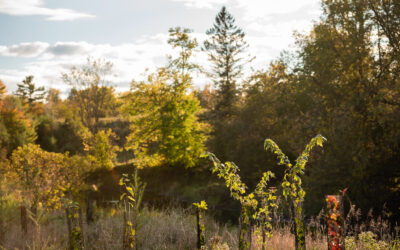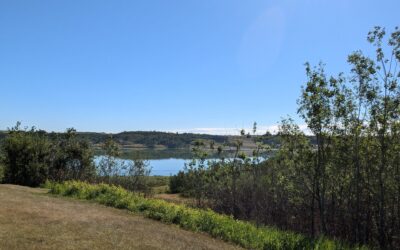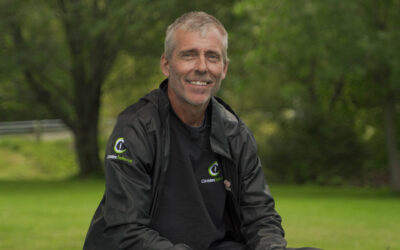On November 30 and December 12, ALUS CEO Bryan Gilvesy appeared before the Standing Committee on Environment and Sustainable Development (ENVI) to highlight how farmers and ranchers can help Canada manage and protect its freshwater resources.
Mr. Gilvesy was invited to appear as a witness in front of the committee in response to ALUS’ submission to ENVI’s freshwater policy study, which highlighted how ALUS has been implementing one of the most effective and scalable solutions to water quality protection for nearly two decades: building and restoring natural infrastructure on marginal or uneconomic farmland.
“The agricultural sector both relies on and affects freshwater resources in Canada,” says Mr. Gilvesy. “The decline in Canada’s inventory of natural assets, like wetlands and forests, has removed critical infrastructure that helps protect water quality from agricultural practices and activities that affect freshwater systems.”
When natural infrastructure is missing, the resulting impacts on water quality can include the following:
- Soil erosion and sedimentation, which impacts aquatic plants and wildlife and creates an environment favourable to the development of algae blooms and pathogens.
- Run-off of nutrient, pesticides, organic matter and pathogens from livestock manure, which threaten aquatic life and drinking water systems.
Natural infrastructure built by farmers and ranchers on the working landscape reduces nutrient from entering freshwater systems, thereby preventing harmful algae blooms; reduces soil erosion and sedimentation of waterways; slows waterflows and increases absorption to reduce flood risk; and supports groundwater recharge for increased water security for both upstream and downstream communities.
Wetlands restored by farmers help manage rising watercourse levels by slowing waterflows, as well as support groundwater recharge by capturing and absorbing excess water. It also protects food security by reducing the effects of severe weather, such as wind, ice and rainstorms, on croplands, as well as enhancing wildlife habitat to support birds, pollinators and other beneficial insects and insectivores.
ALUS knows this solution is simple because it has supported over 1,600 Canadian farmers and ranchers in building more than 46,000 acres of nature-based projects that enhance natural infrastructure to protect water quantity and quality, including restoring and/or creating tens of thousands of acres of wetland habitat. ALUS has also quantified freshwater benefits produced by ALUS projects within four Ontario watersheds and has proven that ALUS projects deliver positive benefits for water quality and quantity.
Natural Infrastructure Built by ALUS Farmers & Ranchers
![]()
37,550
acres of wetland ecosystems
![]()
8,861
acres planted with trees and shrubs
With support from RBC Tech 4 Nature, ALUS modelled water-based outcomes across four watersheds (Big Creek, Big Otter Creek, Catfish Creek and Kettle Creek) within the Lake Erie Basin in Ontario. The project demonstrated the effectiveness of nature-based projects on ALUS farms in reducing nutrient from entering watercourses that feed into Lake Erie, with the largest benefits coming from restored or created wetlands.
ALUS has shown how the agricultural community can deliver effective solutions to freshwater quality concerns across the country. ALUS and its network of farmers and ranchers are standing ready to scale its efforts and deliver measurable water quality outcomes through nature-based solutions on marginal farmland for the benefit of all Canadians.



